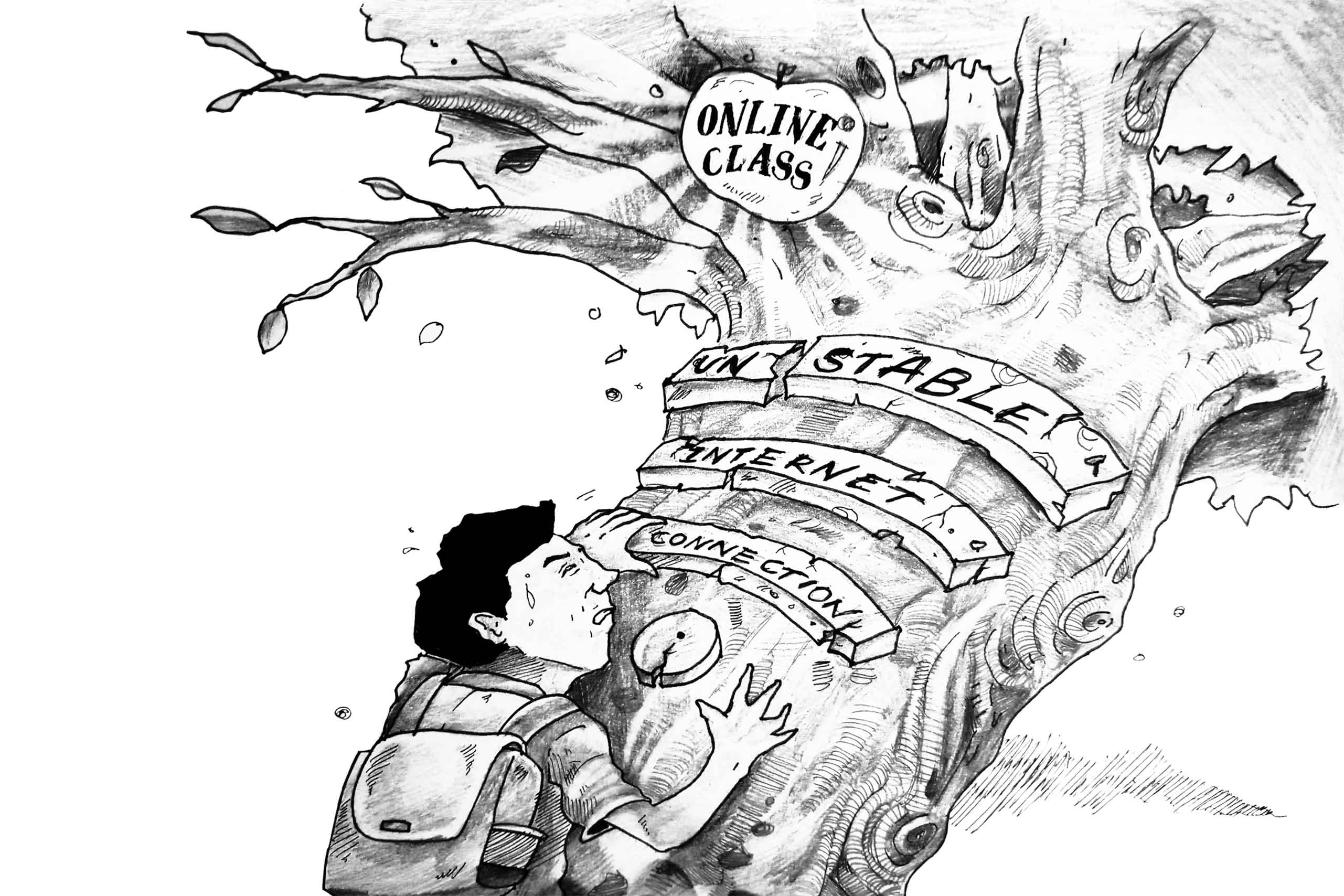On online classes: Why the voices behind the numbers matter
Behind the statistics are voices stifled and reduced into numbers—figures void of inclusive understanding and consideration. The power that our voices hold resonates in the hearts of the masses, and yet it somehow keeps falling on deaf ears. In this time of crisis, it is the students’ voice that calls out to the ‘compassion’ of their educational institutions to suspend online classes due to challenges of online learning.
It’s true, technology is an ever-present bridge to education in the modern day, but it still has limitations considering that the education system we have today is fashioned after traditional classroom setting. This has become a huge concern now that the University implemented “distance learning mode” following the class suspension due the coronavirus disease 2019 (COVID-19) pandemic.
On March 24, the Office of the Vice Chancellor for Academics and Research (OVCAR) released a memorandum that tackled updated measures on the continuation of online classes, including survey results from the students, faculty, and parents. Exactly 2,470 students out of the total population of 6,899 answered the survey, and the results show that 35% do not have internet access, while 50% only use mobile phones to do so. So while the idea of continuing lessons online sounds productive and optimal, the privilege of access is another question.
If you look beyond the data and imagine the students the survey data represent, it is not a good picture to see that some students are left behind. The problem of privileged access also involves the question of whether or not the students get the quality education and services that they or their parents paid for.
The Learning Management System (LMS) – Schoolbook itself is designed as a complement to a curriculum-based study that fits a classroom setting. Utilizing a tool that is supposed to be a supplement for class management poses a big question on thorough learning. What was once supplementary can never be a sole alternative to cover rather demanding cornerstones of subjects like research, laboratory, and field classes.
On the other hand, others can even argue how the youth can spend time on social media, but refuse the idea of online classes. While this argument is compelling, it fails to consider the minority who might not have access to educational platforms that need much stronger connection. And even then, surfing the internet does not present obstacles that put something as important as education at stake. It does not justify the missed actual opportunities for learning, the twists and turns of traditional setting education is built upon.
Distance learning modalities do not address the social dimensions of this crisis that has affected the lives of students and all members of the institution. In fact, it magnifies already-existing disparities within the education system.
With all social conventions of life thrown out the window during the pandemic, any online learning platform helplessly cripples at the weight of the entire education system.
Indeed, this is one great battle. But what we should understand here is this fight is not between the school administration and the students—but both together against the current crisis. During times of despair, only one rule applies: whatever it takes. But it doesn’t have to be at the expense of quality education and inclusivity.
At this point, everyone is trying to figure out how to keep schooling sustained. But in a larger perspective, everyone is trying to figure out how to sustain life. Inside our homes, we all fight our own battles no one knows about, which could be forms of “respite from learning.” It’s easy to say that we could “choose to be a Lasallian”, but in extraordinary times where we are faced with psychological, economic, and social stress, one might just opt to try to be a person—for the self, family, and community. We might have a disaster-proof learning system, but we do not have disaster-proof learners.
The HERALDO FILIPINO does not intend to stray away from the convictions of the institution to advance learning, but HF can’t also look away from the students who have spoken up about their struggles, some of them personally reaching out to the publication saying the survey results did not include, represent, or side them.
All is not equal in home learning, and much less so when the catch-up time comes should onsite classes resume after one month of distance learning. In the end, we will all pay for the recovery cost of this crisis. We might as well pay for it in an equitable way.
It’s easy to think that all Lasallians have the privilege of online access—but this whole idea betrays what the institution prides itself for: inclusivity. There are many ways to choose to be a Lasallian, and catering to every single one in the community of diverse needs is the most meaningful of them all.
Every student’s voice matters. No student should be left behind.




